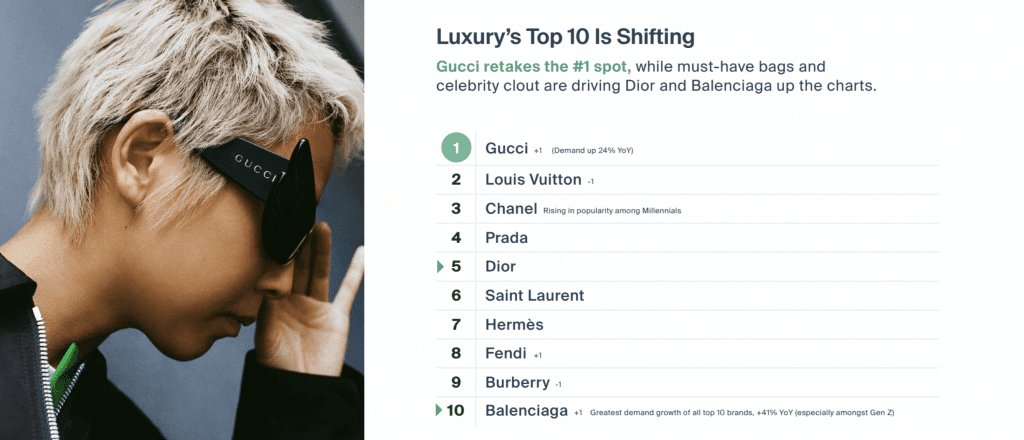The biggest news of the week came by way of the announcement of a deal between Richemont and Farfetch, which will see Richemont sell a 47.5 percent “non-controlling” stake in Yoox-Net-a-Porter to Farfetch in exchange for a 10 to 11 percent stake in Farfetch and a write down of approximately EUR 2.7 billion ($2.68 billion). Farfetch’s stock, which jumped by 21.3 percent in the wake of the YNAP news, is up again today following its Q2 earnings report on Thurs. Richemont’s share price rose 3% following the announcement on Wed., but was down by 3% as of 12pm EST on Friday.
In a stark contrast to luxury brands, which are readily (and successfully, based on their latest results) boosting their prices, big players in the broader apparel sectors are angling to slash prices in an attempt to clear mounting inventories of unsold wares. Gap, Inc. for one, is working to “sequentially reduce inventory [and] rebalance our assortments to better meet changing consumer needs,” Katrina O’Connell, Gap Inc. chief financial officer, said this week. This is likely to result in more promotional activity, particularly as younger (more cash-strapped) consumers are proving to be problematic – something that is proving true for both mass-market and luxury-level brands.
One place where younger consumers – i.e., Gen Z – are proving active is in the resale segment. In its annual Luxury Resale Report this week, The RealReal revealed that Gen Z consumers (those born from 1997-2012) are the ones that resell items the most quickly (and that are increasingly buying more), prompting comparisons to the speed and turnover of the fast fashion model. Together with millennials (the largest single generation of buyers/sellers on TRR), the two demographics comprise 41% of the reseller’s customers.

Another interesting takeaway from the report: An alleged shift in spending. “The pandemic ushered in an era that’s seen shoppers spending on high-value bags, watches, and sneakers,” TRR says. “But now, the It investments — and the top brands in luxury resale — are shifting,” with Gucci “regaining its place, and Dior and Balenciaga moving up the chart thanks to mainstay bestsellers, vintage comebacks, and peak cultural relevance.” Still yet, TRR says that “clothing from the archives is skyrocketing as the fastest-growing vintage category, and collectibles like comics, trading cards, and skate decks are attracting buyers in record number.”
In the litigation developments that caught my eye this week: Judge Otis Wright of the C.D. Cal. determined that fashion brand Deadly Doll sufficiently asserted counterclaims of © infringement and declaratory relief, against paparazzi photog Carlos Vila. Vila sued Deadly Doll in July 2021 for © infringement for posting a photo he took (and has a © registration for) of model Irina Shayk wearing sweatpants from the brand that are adorned with large artwork on the leg. Deadly Doll subsequently accused Vila of infringing its © in the artwork, and is seeking a judicial declaration clarifying the validity of the © in the artwork and in the photograph, and whether either party infringed the other’s ©. (You can find Wright’s order here.)
And in non-YNAP deal-making news this week: Houston-based Tradeblock has raised more than $8.9 million in seed funding from investors Courtside VC, Trinity Ventures and Concrete Rose Capital, which it will use to further build out its barter-based trading platform for shoe collectors.